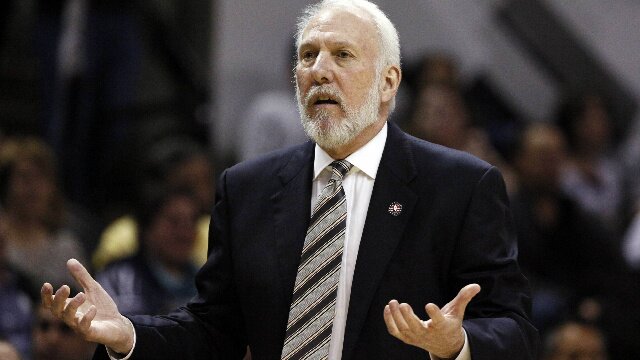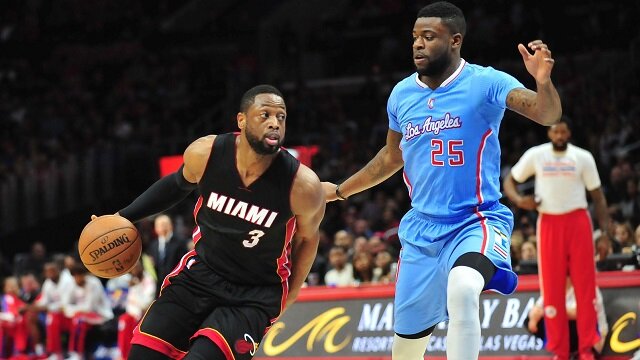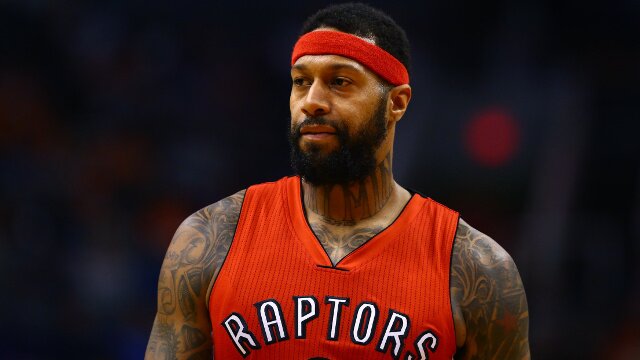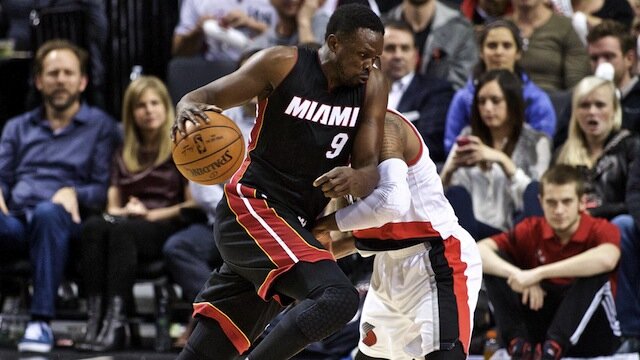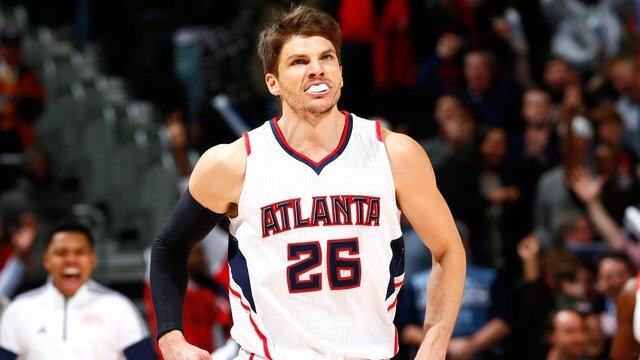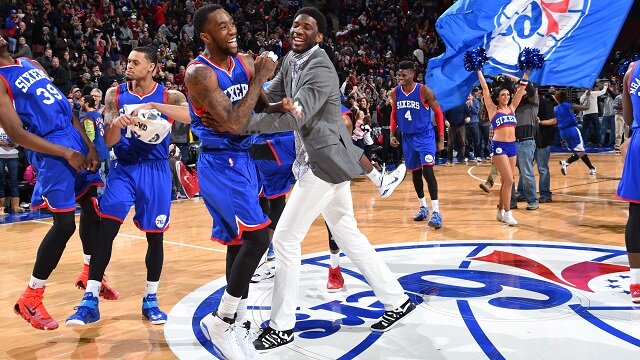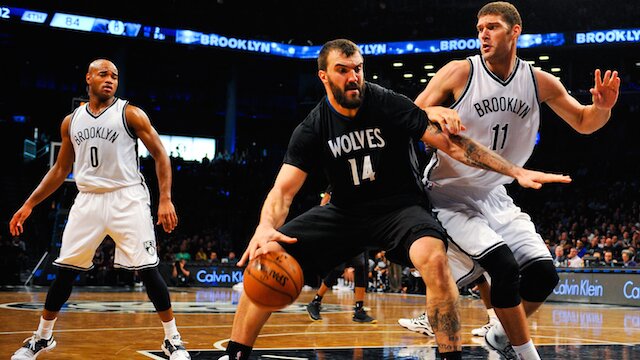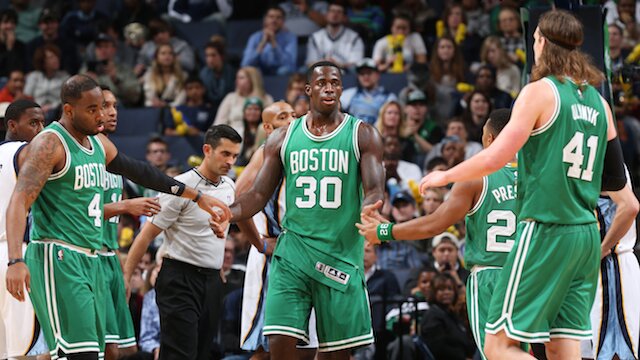San Antonio Spurs Continue To Illustrate The Need For A Shorter NBA Season
On Thursday, Gregg Popovich will give both the NBA and its fans his yearly reminder that the season is too long and too grueling.
The NBA season hasn’t officially started until Pop rests star players for a nationally-televised game, which will happen tonight when Tim Duncan and Manu Ginobili grab some bench as the San Antonio Spurs take on the Houston Rockets. Although the Spurs are playing the second half of a back-to-back, it is a little surprising that Popovich is sitting two stars when his team is already dealing with a few minor injuries and had four days off prior to their game against the Atlanta Hawks.
The Spurs have made resting key players commonplace in recent years, often getting fined by the NBA for not playing marquee players, especially in nationally-televised games. The strategy was born of necessity when injuries hurt San Antonio down the stretch several times during the Spurs’ NBA Finals drought between 2007 and 2013.
Now Popovich has taken it to even more of an extreme, managing not only games played, but also keeping every player on his team under 30 minutes per game a season ago, showcasing his team’s unparalleled depth.
It’s time for the league to step in on the daunting length of an NBA season. NBA players’ travel schedules are the most difficult of any sport, and brutal back-to-backs and sets of four games in five nights are incredibly taxing on players’ bodies. Players don’t get enough sleep or rest, negatively affecting their performance and the product on the court. Teams that play deep into the playoffs in consecutive years face an absurd amount of physical exertion, increasing injury risks.
In addition, regular season games would be more valuable with a shorter slate. Most teams know who they are by the All-Star break and fall into three camps: contenders hoping to round into form and stay healthy, teams scrapping for a playoff spot, and weary lottery teams ready for the offseason. A shorter season would help everybody, simultaneously increasing the variability and excitement of the season for fans.
The NBA experimented with a shorter game in the preseason, a change that would have far more unseen consequences for the games themselves and wouldn’t fix the travel and sleep concerns.
It seems like a no-brainer, and with the influx of money coming to the league in its new TV deal with ESPN and TNT, they may be able to absorb much of the lost revenue if the league were to time a change properly. NBA commissioner Adam Silver has stayed mostly quiet on the issue, reluctantly standing by the status quo, but he should be implored to explore a shorter season.
While 60 or 66 games would be interesting benchmarks, the most likely change would be to 72 games. With some creative scheduling and perhaps adding a week or so to the regular season, the NBA could eliminate back-to-backs and the dreaded four-in-fives. For now, the Spurs will continue benefiting from their built-in advantages – an excellent front office, a deep roster, and a Hall of Fame coach – as other teams wear down their stars during the regular season.
Clippers Need Help On Bench
The Los Angeles Clippers may need to make a move to strengthen their bench after a poor performance against the Miami Heat. Read More
The Trade Machine Allows Us to Change Up the NBA
ESPN's NBA Trade Machine is a beautiful device that allows us to hypothesize different roster possibilities. Which scenarios do you find most intriguing? Read More
James Johnson Has Been Great Surprise For Raptors
After a failed attempt with the Toronto Raptors early in his short career, James Johnson has been great this season and continues to surprise. Read More
Chicago Bulls' Pau Gasol Is Rejuvenated
Chicago Bulls PF Pau Gasol has silenced doubters and is playing some of the best basketball of his career with the Bulls. Read More
Heat Should Stand Pat During Trade Period
Although the Miami Heat are having a rough season, they shouldn't rush into signing just any player during the trade period. Read More
Outcome Predictions For Heat's Next 5 Games
The Miami Heat are in the midst of a six-game stretch against the NBA West. With the season possibly riding on the next five games, here are my game predictions. Read More
Trail Blazers vs. Lakers Preview
The Portland Trail Blazers look to continue with their winning ways against the Los Angeles Lakers. Find out how the game will play out. Read More
Washington Wizards vs. Atlanta Hawks Preview
Two of the top teams in the Eastern Conference will square off when the Washington Wizards take on the Atlanta Hawks. Find out how things will play out. Read More
76ers Becoming A Likable Cast of Characters
The Philadelphia 76ers' young roster has often been scrutinized because of Sam Hinkie and the team’s front office. But after their most recent stretch of wins, they are becoming a very likable cast. Read More
Oklahoma City: 5 Players Team Should Target
Approaching the March 1 NBA trade deadline, the Oklahoma City Thunder should target these five players. Read More
Boston Celtics: 5 Trades Team Should Make
The Boston Celtics should make these five trades to expedite the rebuilding process. Read More
Kobe Bryant Does Not Care About Lakers
Kobe Bryant choosing to continuously sit out shows that he is done with the Los Angeles Lakers organization. Read More






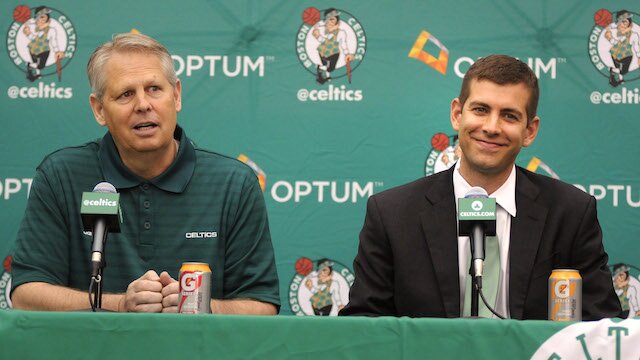


 @MattSamFolk
@MattSamFolk 